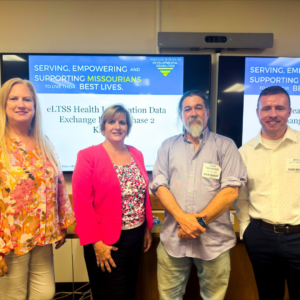
May is Mental Health Awareness Month, a time to foster understanding, reduce stigma, and drive action toward meaningful solutions for individuals and families impacted by mental illness. As the nation grapples with a growing behavioral health crisis, particularly among youth, it’s more urgent than ever to reimagine how we deliver mental health services. That means prioritizing accessibility, empathy, and efficiency across all points of care, including how we empower patients and those that support them.
Recent data paints a sobering picture: according to The Lancet Psychiatry, nearly 50% of people will develop a mental illness at some point in their lives. Among youth, the numbers are equally troubling. The CDC reports that one in three American teenagers experience poor mental health, and the National Alliance on Mental Illness notes that suicide is the second-leading cause of death among individuals ages 15 to 24.
Despite these alarming statistics, stigma and system inefficiencies often prevent families from getting the help they need. Even those who do seek care face fragmented services, confusing paperwork, and prolonged delays—barriers that can be devastating during moments of crisis.
Navigating the Baker Act with Dignity and Clarity
In Florida, one of the most high-stakes moments a family can face is the activation of the Baker Act, a state law that allows for involuntary mental health evaluations. While intended to ensure safety during acute crises, the Baker Act process can be deeply confusing and traumatic for families, particularly when they are not given clear explanations of their rights or consent requirements.
That’s why it is critical to modernize how we manage behavioral health interventions, starting with patient consent.
The Future of Consent: Introducing Consent Manager+™
A major step forward in this modernization effort is the launch of Consent Manager+™, a first-of-its-kind, AI-powered platform developed by Velatura Public Benefit Corporation. Designed to redefine how patient consent is captured, managed, and shared across care settings, this digital solution streamlines workflows, enhances privacy, and ensures compliance with federal and state regulations.
In behavioral health—where many individuals are navigating services for the first time—paper-based consent forms can introduce delays, confusion, and unnecessary stress. Consent Manager+ replaces that outdated process with an intuitive, digital alternative that’s faster, more secure, and easier to understand.
Its impact goes beyond paperwork. By simplifying and accelerating consent, Consent Manager+ removes a major barrier to coordinated, wrap-around care, unlocking a truly whole-person approach that integrates physical, mental and social support services. This coordination is not only critical to better patient outcomes, it’s also a lifeline for Florida’s behavioral health professionals, many of whom are battling burnout and workforce shortages.
Meet Ask Telli™: AI-Powered Support for Families in Crisis
At the heart of Consent Manager+ is Ask Telli™, Velatura’s proprietary, context-sensitive AI chatbot. Ask Telli serves as a compassionate guide for families navigating high-stress situations like those triggered by the Baker Act.
Families can interact with Ask Telli to:
- Get step-by-step explanations of their rights and options
- Ask real-time questions about consent forms and terminology
- Complete and submit consents digitally, reducing stress and delays
This intelligent support system empowers families during critical moments, keeping them informed and confident when they need it most.
A Blueprint for Change
Florida’s behavioral health system serves more than 600,000 individuals annually. By modernizing tools and processes, particularly around consent, solutions like Consent Manager+ can help reduce delays, eliminate confusion, and improve coordination across the continuum of care.
Technology alone can’t solve the mental health crisis, but it can play a vital role in making care more responsive, integrated and sustainable for both providers and patients. This Mental Awareness Health Month, let’s celebrate not only awareness—but action. Together, we can build a behavioral health system that empowers families, respects patient choice, and delivers the coordinated care every child deserves.
Shelley Mannino is Executive Vice President of Velatura HIE Corporation. She resides in Fort Myers, Florida.

